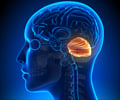Venlafaxine Medication Information
Learn everything you need to know about Venlafaxine-pronunciation, uses, dosage guidelines, indications, and when to take or avoid it.
Get up-to-date information on side effects, precautions, warnings, and proper storage to ensure safe usage.
Explore Venlafaxine brand names commonly used in India and internationally, along with detailed pricing information. Consult your healthcare provider for tailored medical advice.
Generic Name : Venlafaxine Pronunciation : ven' la fax een ICD Code : Y49.2 Therapeutic Classification : PsychotherapeuticsBrand Names or Trade Names of Venlafaxine
India :
International :
Effexor
Why is Venlafaxine Prescribed? (Indications)
This medication is a selective serotonin and norepinephrine reuptake inhibitor (SSNRI), prescribed for depression, generalized anxiety disorder, social anxiety disorder, and panic disorder. It increases serotonin and norepinephrine levels in the brain that help to maintain mental balance.When should Venlafaxine not be taken? (Contraindications)
Contraindicated in patients who are taking MAOIs or who have taken MAOIs within 14 days, and hypersensitivity.What is the dosage of Venlafaxine?
For depression- Initial: 75 mg/day in 2-3 divided doses, increase slowly if needed. Max: 375 mg/day.For anxiety Extended release- Initial: 75 mg once daily, may increase slowly if needed. Max: 225 mg/day.
For panic disorder- 37.5 mg once daily for 1st 7 days, may increase slowly if needed. Max: 225 mg/day.
How should Venlafaxine be taken?
It comes as a tablet or extended-release capsule to take by mouth. Take tablet 2times/day and extended-release capsule once daily in the morning or evening with food.What are the warnings and precautions for Venlafaxine?
•It may cause moderate to severe liver or kidney problems. Conditions which may be worsened by increase in heart rate.Caution should be exercised in patients with history of heart attack, bleeding disorder, epilepsy, hypomania or mania, elderly, during pregnancy.
Monitor blood pressure, serum cholesterol regularly.
• Monitor closely during early therapy until depression improves due to increased risk of suicide.
Discontinue if seizure develops or increase in seizure frequency.
♦Patient may develop with increased risk of Serotonin Syndrome with the following symptoms: restlessness, diarrhea, fast heart beat, incoordination, nausea, vomiting. If it is so consult with your healthcare provider.
What are the side effects of Venlafaxine?
Heart- Widening of blood vessels,high blood pressure, palpitations, fast heart beat, low blood pressure, deep vein blood clot, ECG abnormalities (eg, QT prolongation), irregular heart beat.Central Nervous System- Headache, drowsiness, dizziness, sleeplessness, nervousness, weakness, anxiety, tremor, abnormal dreams, agitation, depression, increased muscle tightness, tingling, twitching, abnormal thinking, confusion, loss of memory, impaired coordination and balance, involuntary movements, shock-like electrical sensations.
Skin- Sweating, rash, itching, redness of the skin, toxic epidermal blistering.
Eye and ENT- Throat inflammation, abnormal vision, dilation of pupil, taste perversion, sudden eye pressure, eye bleeding.
Gastrointestinal- Nausea, dry mouth, loss of appetite, constipation, abdominal pain, diarrhea, vomiting, indigestion, flatulence, eructation, increased appetite,bleeding.
Genitourinary- Abnormal ejaculation, impotence, decreased sexual activity, impaired urination, orgasm disturbance, urinary frequency, albumin in urine, painful menstruation, weak urination, vaginal inflammation, urinary retention.
Blood-Discoloration of skin, decrease in white blood cell, decrease in platelets, and neutrophils.
Liver- Liver function abnormalities, liver damage, necrosis, or failure, and fatty liver.
Metabolic- Weight loss, edema, weight gain
Respiratory- Inflammation of bronchus, cough increased, difficulty in breathing, interstitial lung disease.
Miscellaneous- Yawning, chills, flu-like syndrome, infection, accidental injury, chest pain, trauma, joint pain, fever, neck pain, chest pain, birth defect, bleeding, increased prolactin, night sweats, high concentration of eosinophils, kidney failure.












